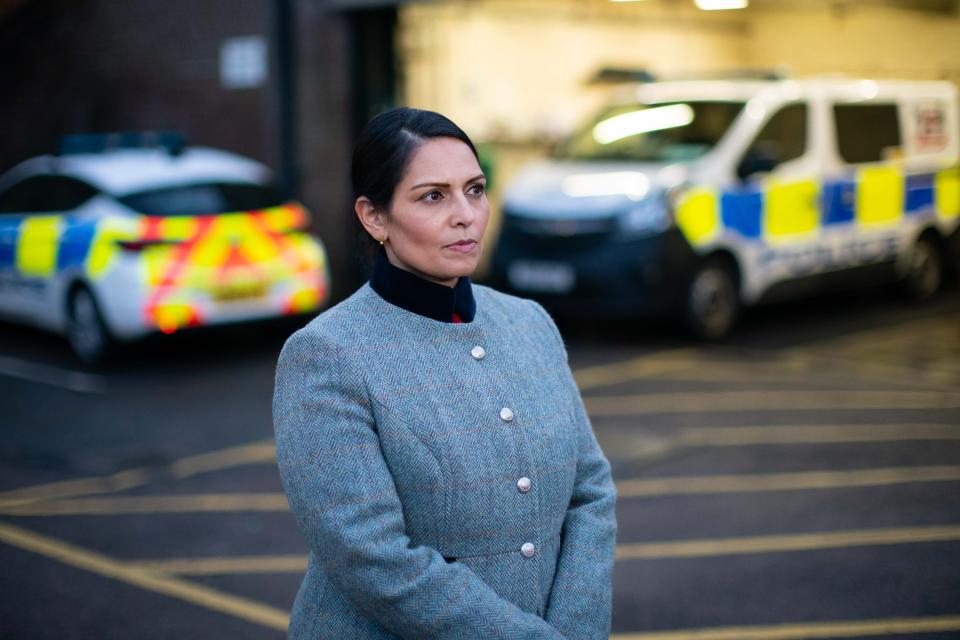Priti Patel warned police league table plan will ‘drive perverse behaviour’ in policing

The home secretary has been criticised for introducing a ‘return of targets’
(PA Wire)Priti Patel has been warned against drawing up league tables to measure police forces on their success in cutting serious crime.
Critics of the home secretary’s controversial plans say it is a return to targets and would encourage “perverse behaviour in policing”, reports The Times.
It is understood police chiefs have been told six types of crime - including homicide, serious violence and cybercrime - will be measured against national benchmarks.
Senior officers have described the home secretary’s latest move as “a return to the culture of targets”.
One source told The Times: “It’s akin to league tables. This is yet another land grab by the home secretary. These targets will drive perverse behaviour in policing.”
Force-level data will not be made public but the government will demand elected police and crime commissioners (PCCs) tell people how their force is performing against the targets.
However, the policing minister Kit Malthouse claimed the measures would provide “national accountability and collective responsibility”, adding they would be judged on “victim satisfaction”.
The national benchmarks will be based on traditional data such as recorded crime, plus new measures including referrals into drug treatment programmes.
Mr Malthouse added it “does not represent a return to force-led numerical targets”.
But another chief constable told The Times: “Calling them measures instead of targets is an exercise in pedantry and sophistry.
“It’s not unreasonable to require specific outcomes but they should be upfront about it.
“The Tory government heralds local accountability via PCCs but the Home Office wants to be more assertive with national measures - you can’t have both.”
Historically, police crime targets have led to a disproportionate focus on some crime but not others.
Mr Malthouse was Boris Johnson’s deputy mayor for policing during the former’s time in City Hall, overseeing the introduction of targets for crimes including burglary, violence and theft from vehicles.
The Metropolitan Police focussed too much on those areas at the expense of protecting the victims of rape and child sexual abuse, according to the police watchdog.
Read More
What is the ministerial code and does it need to be updated?
Facebook encryption plan puts progress against child sexual abuse ‘in jeopardy’
Patel urges tech firms to ‘live up to moral duty’ to keep kids safe

 Yahoo Finance
Yahoo Finance 